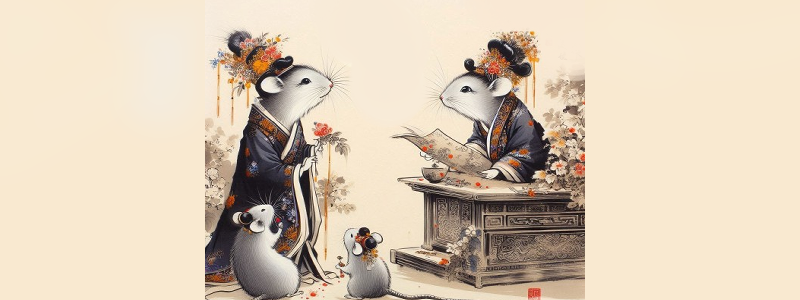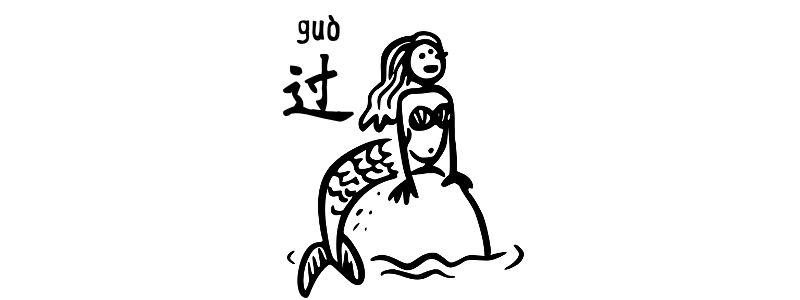Grammar Point:The ABAB form is a common way to soften the tone of an action, making it sound more casual, tentative, or informal. It is frequently used in spoken Chinese to suggest trying something out or doing it briefly. Structure Two-Syllable Verbs – ABAB 我們wǒmen先xiān討論tǎolùn討論tǎolùn, 再zài決定juédìng吧ba我们wǒmen先xiān讨论tǎolùn讨论tǎolùn, 再zài决定juédìng吧baLet’s discuss a little first, then decide! 這zhè次cì聚會jùhuì有yǒu很hěn多duō新xīn朋友péngyǒu, 大家dàjiā可以kěyǐ互相hùxiāng認識rènshì認識rènshì! 这zhè次cì聚会jùhuì有yǒu很hěn多duō新xīn朋友péngyou, 大家dàjiā可以kěyǐ互相hùxiāng认识rènshi认识rènshi! There are many new…
Author: tiffany
Chinese New Year
過过年 guònián (Chinese New Year) is the most important traditional festival in China, celebrated by Chinese communities worldwide. The festival lasts for 5-9 days, depending on which day of the week it starts. People celebrate by reuniting with family, having big feasts, giving red envelopes (紅红包 hóngbāo), and setting off firecrackers. Each year is associated with one of the 12 Chinese…
The Mouse Marries His Daughter 2
“The Mouse Marries His Daughter” is a story for HSK3+ learners. Stories I shared some are Chinese folk tales, and some are my creations. According to an old Chinese legend, mice from all over the world get together on the third night of Chinese New Year to celebrate a very special wedding – it’s the…
The Mouse Marries His Daughter
“The Mouse Marries His Daughter” is a story for HSK3+ learners. Stories I shared some are Chinese folk tales, and some are my creations. According to an old Chinese legend, mice from all over the world get together on the third night of Chinese New Year to celebrate a very special wedding – it’s the…
“Thus” in Chinese 1 – 从而 cóng‘ér
Grammar Point:從从而 cóng’ér is a formal conjunction used to indicate a cause-and-effect or means-and-result relationship between two clauses. It can be translated as “thus,” “thereby,” or “consequently” in English. Structure Cause or method + 從从而 cóng’ér + resulting 從从而 cóng’ér is mainly used in formal writing, such as essays, reports, and news articles, to emphasize a logical result following a cause or method. While it…
Showing Experience with 過 guò
Grammar Point:The particle 過过 guò is used to talk about something you have or haven’t experienced in the past. It always goes right after the verb. Structure S + V + 過过 guò + O 我wǒ去qù過guò中國Zhōngguó我wǒ去qù过guò中国ZhōngguóI have been to China. 你nǐ看kàn過guò這zhè部bù電影diànyǐng嗎ma? 你nǐ看kàn过guò这zhè部bù电影diànyǐng吗ma? Have you seen this movie before? 我wǒ見jiàn過guò他tā我wǒ见jiàn过guò他tāI have met him before. 我wǒ說shuō過guò嗎ma??我wǒ说shuō过guò吗ma??Have I said that before?…
Different Functions of 差不多 chàbùduō
Grammar Point:差不多 chābùduōchàbuduō expresses the idea of “not much difference” or “almost the same.” It is often used to describe a situation where two things or situations are very similar or nearly identical. Structure S1 + (and + S2) + 差不多 Verb – It general means “about the same” in English. 我們wǒmen的de年紀niánjì差不多chābùduō我们wǒmen的de年纪niánjì差不多chàbuduōOur ages are about…
Using 将 jiāng to express 把 bǎ
Grammar Point:In Chinese grammar, 將将 jiāng can function similarly to 把 bǎ when constructing sentences that emphasize the handling or disposition of an object. But 將将 jiāng is more formal and is often used in written or official contexts, whereas 把 bǎ is more commonly used in spoken Chinese. If you are not familiar with 把 bǎ, I recommend reading this article first.What…
Location with 部 bù and 邊 biān
Grammar Point:The key difference is that 部 bù refers to an entire section or region, while 邊边 biānbian refers to a side or direction. 部 bù 部 bù is more formal and typically used to refer to regions in a directional sense, such as 東东部 dōngbù (the East), 南部 nánbù (the South), 西部 xībù (the West),…
Only & Longer Than Expected – 才 cái
Grammar Point:In Chinese, 才 cái is used to indicate that something is less than expected or insufficient, often reflecting the speaker’s surprise or dissatisfaction. It can also suggest that something happened later or more slowly than anticipated, similar to “not until” or “as late as” in English. Structure S + 才 cái + V + O This…








